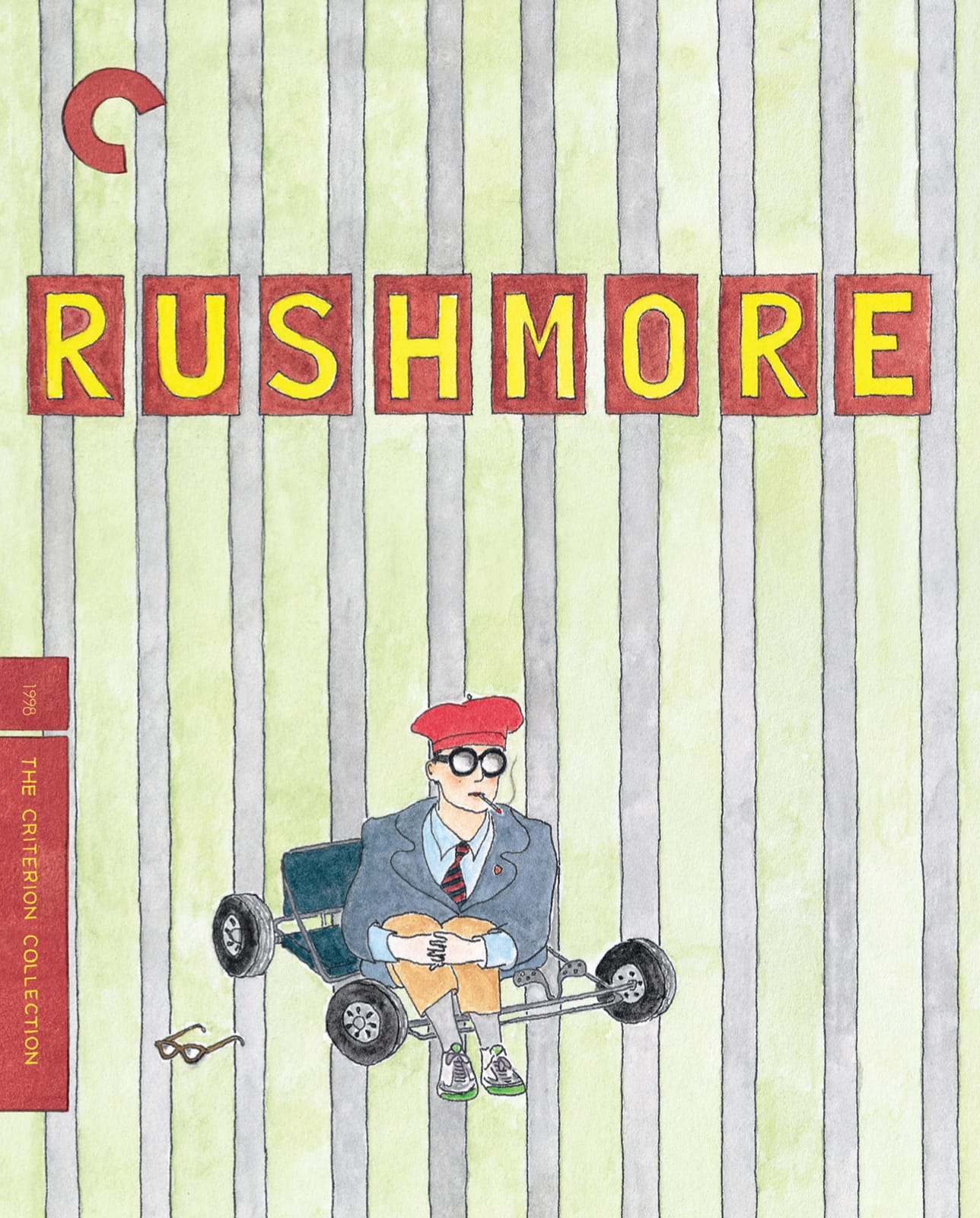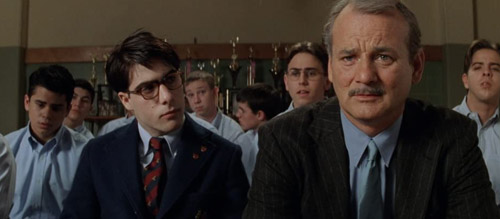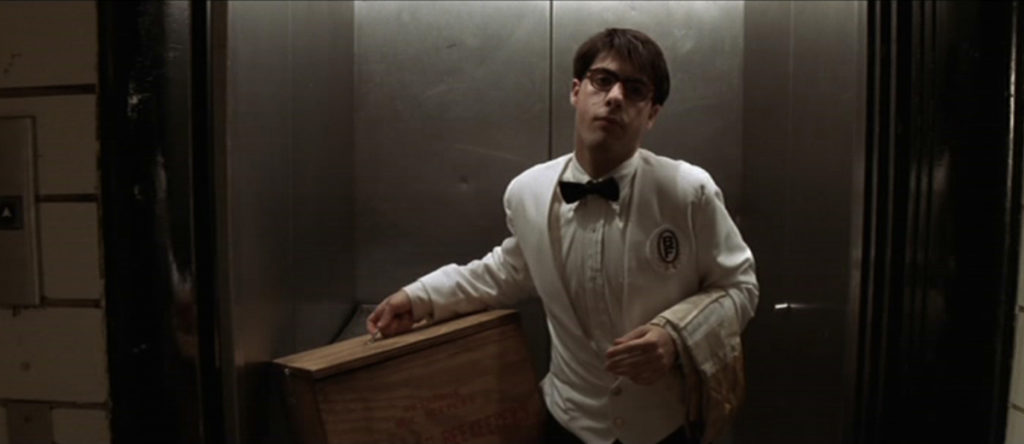
14 Oct The Wes Anderson Collection: Rushmore
The Nerds Shall Inherit the Earth: Wes Anderson’s Coming of Age ‘Rushmore’
The impact of Wes Anderson’s sophomore feature film on the coming-of-age genre cannot be overstated enough. One needs only to look at the genre before Rushmore came out in 1998, though, to see how high school life looked for unusually smart kids like Max Fischer. As depicted in film, kids with brains, talent, good manners, and proper ways of speaking get bullied and ignored. They don’t make an impact on the world, they don’t get treated seriously by adults, and they absolutely never get the girl. Not so in Rushmore, where nerdy-spectacled Max Fischer basically runs the school, deciding what clubs will form and what courses will be taught. In Max Fischer, the teen rebel gets a major makeover. In Anderson’s film universe, looks and brawn no longer a hero make. The highest status goes to the pretenders and the dreamers. Fischer wields power in ways that politicians dream about.
Confident and sure-spoken Max Fischer (Jason Schwartzmann) attends Rushmore Academy on scholarship. Although he’s failing every class, he’s the MVP of every school club, many of which he started. He also writes and directs sophisticated school plays which the student actors perform with hilarious aplomb. Although Max seems like he has life all worked out, in truth he feels ashamed of his humble roots and his barber father (Seymour Cassel). He befriends Herman Blume (Bill Murray), a wealthy industrialist and parent to two of his classmates. Perhaps Max thinks Blume is more befitting the type of parent he wants. But when the lovely Rosemary Cross (Olivia Williams) begins employment
as a teacher at Rushmore, both Max and Blume fall for her and begin to vie for her affections. Meanwhile, Max gets expelled from Rushmore after trying to install an on-site aquarium on school grounds without asking for permission. Separated from Rushmore and his place of power, Max must establish himself anew at a local public school where things run much differently.

Besides heralding in the Age of the Nerd, Rushmore remains an important film in the Wes Anderson canon for multiple reasons. It launched the career of Jason Schwartzmann and set him up as an Anderson favorite. Bill Murray, esteemed for his comedy work in multiple blockbuster films, established himself as an actor in the indie cinema world, as well, and Anderson has never made a film without Murray since. Stylistically, Anderson announces himself as an artist with Rushmore, including most if not all of his trademark touches: the iconic soundtrack, the hyper-focus on the shape and look of inanimate objects, the early hipster wardrobe, the carefully composed shots, and the montages . . . oh the montages. Anderson leans into these flourishes much more in films to come, and perhaps that’s the beauty of Rushmore. Despite the fact that no high schooler ever spoke like Max Fischer ever, he and his co-stars give sincere and tender performances. The quirky essence of Anderson rings out clear, yet it’s not as pronounced.
Storywise, Rushmore travels to unexpected places. While the film never feels long, the arc of the story meanders unexpectedly. And just as it feels as if things are coming to an end, the tempo changes, showing us how Max Fischer adapts and grows. His character development takes center stage as he desperately seeks a way to make sense of the world and find a way to exist. He tries and fails and tries and fails again until he finds a way to win. Max Fischer’s ability to adapt has always helped him navigate life, and as we see him grow and change, there is hope. Rushmore also includes perhaps one of Wes Anderson’s sweetest and healthiest parent figures in Bert Fischer. Dysfunctional families are a crowning aspect of Anderson’s work, but Bert Fischer gives unrelenting support to his son and always shows confidence that Max will figure out his place. While Max doesn’t appreciate his father in the beginning, by the end of the film he recognizes that his father, humbly employed but satisfied with his work, has unfathomable riches when compared to the successful but miserable Blume.

Rushmore remains one of Wes Anderson’s most innocent and hopeful films. It paved a way for a slew of coming of age films to come from numerous directors (John Poll’s Charlie Bartlett and Richard Ayoade’s Submarine being prime examples). It has been said that Wes Anderson and his co-writer Owen Wilson based the character of Max Fischer on different aspects of themselves — Anderson didn’t do well in school but wrote plays at an early age, while Wilson got expelled from a prep school. Many directors aren’t brave enough to make personal or semi-autobiographical films until they are more established. Perhaps the critics’ acceptance of Rushmore gave Anderson the confidence he needed to keep going with his style and even escalate. In any case, the cinema world is better for having Rushmore in it.
Final score: 4 out of 5
Special guest review by Lindsay Dunn, creator of 1 of My Stories and contributor to Elements of Madness


No Comments